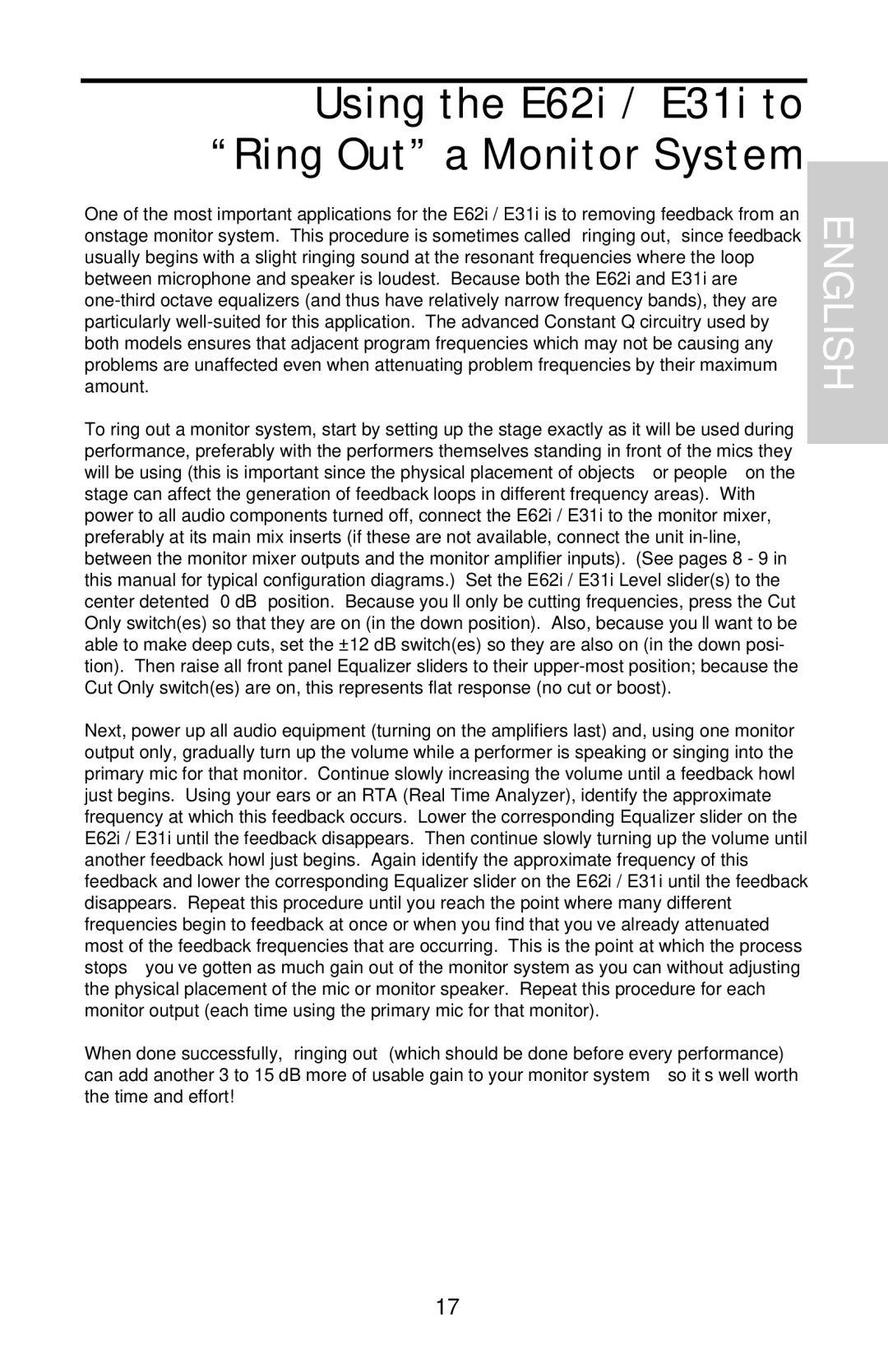E30I, E31I, E62I specifications
The Samson E62I, E31I, and E30I are part of a line of professional audio equipment known for their quality and versatility in various sound applications. Each model is tailored to meet different requirements without compromising on performance.The Samson E62I is notable for its advanced design and exceptional sound quality. This model utilizes advanced driver technologies to deliver crisp highs and deep lows, making it ideal for both live performances and studio recordings. The E62I features a robust build, ensuring durability in demanding environments. Its lightweight construction allows for portability while maintaining structural integrity. The incorporation of advanced acoustic engineering means that sound professionals can rely on the E62I for an accurate reproduction of audio signals.
The Samson E31I is specifically designed for smaller venues or personal use, maintaining the high standards associated with the Samson brand. This model integrates a sleek, compact design that does not compromise audio quality. The E31I incorporates powerful monitoring capabilities, perfect for musicians who need to hear themselves clearly while performing. With built-in features like adjustable EQ controls and high-output performance, this model provides seamless integration into any audio setup. Additionally, its user-friendly interface makes it accessible for both beginners and seasoned professionals alike.
The Samson E30I complements the lineup by offering a budget-friendly option without sacrificing fundamental features. Despite its lower price point, the E30I includes the essential technologies that define the Samson reputation. It provides reliable performance for various applications, such as spoken word events and musical performances. The E30I is equipped with a simple yet effective design, featuring a clear sound output that captures the nuances of vocals and instruments alike. Its compact form factor ensures it can be easily transported and set up in any location.
In summary, the Samson E62I, E31I, and E30I represent a robust range of audio solutions catering to diverse needs. Each model integrates advanced technologies and user-friendly designs, ensuring high-quality sound and performance. Whether in a professional studio, at a live event, or for personal use, these models provide solutions that meet the expectations of audio professionals and enthusiasts alike. With Samson's commitment to innovation, each model stands as a testament to the brand's dedication to enhancing audio experiences.

